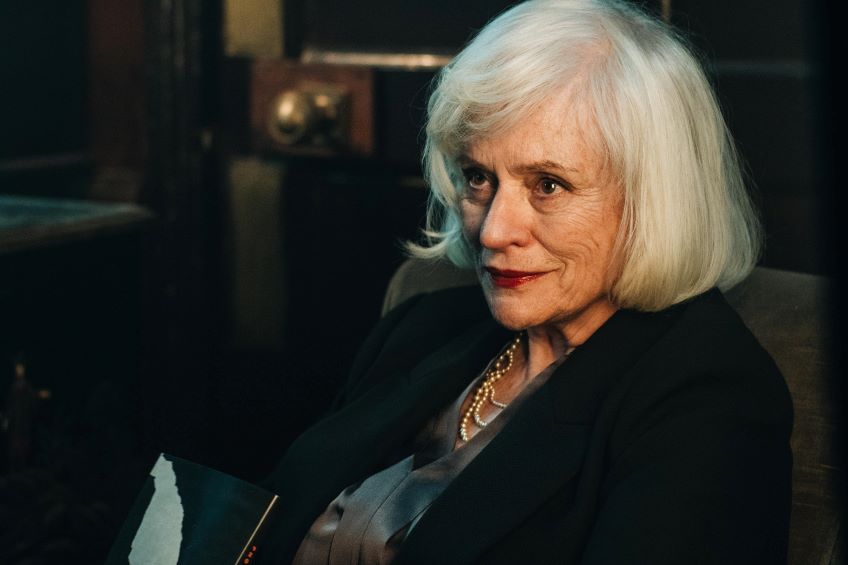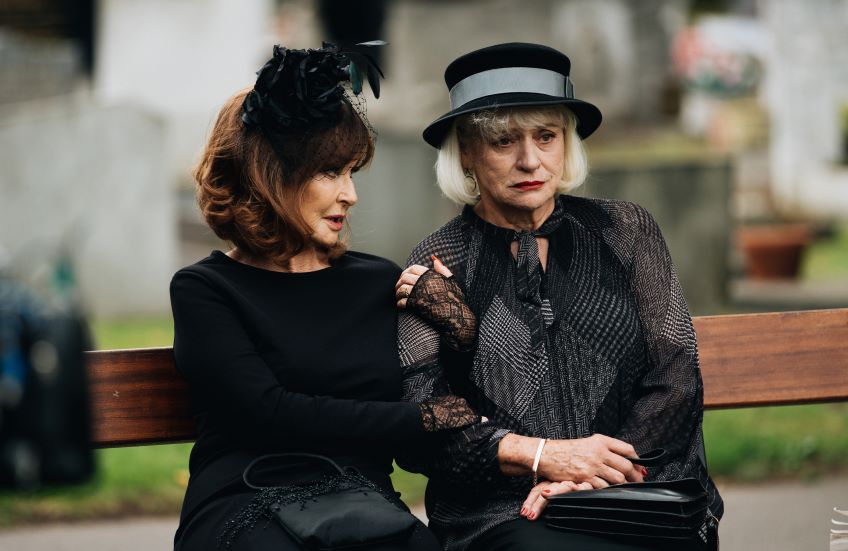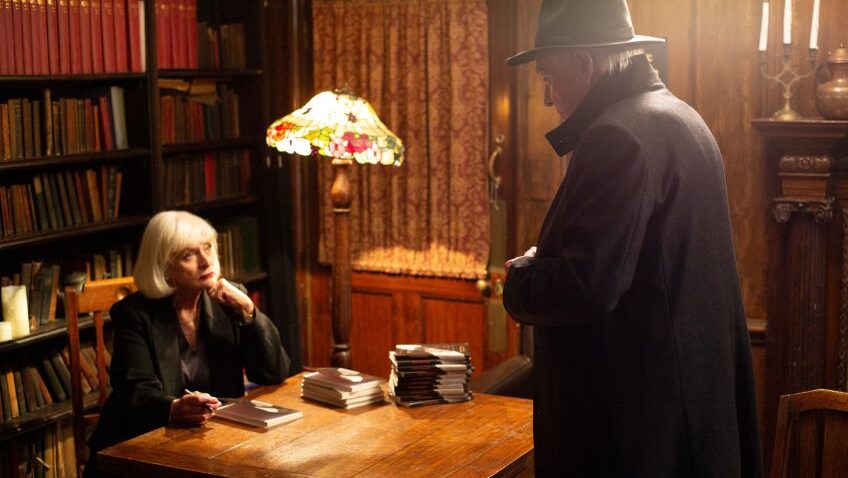Joyce Glasser reviews Forever Young (January 26, 2024) Cert 15, 99 mins.
It is wonderful seeing 77-year-old stage, small and big screen actress Diana Quick, best known for playing the tragic Julia Flyte in Brideshead Revisited, living in another big house, this one purchased and furnished with the proceeds of her character Robyn Smith’s best-selling books. It gets better as her loving husband of nearly fifty-odd years, Oscar Smith, is played by 79-year-old Bernard Hill, who famously portrayed another character named Smith – Captain Edward Smith – in James Cameron’s Titanic. It’s just a shame that writer-director Henk Pretorius’ sci-fi plot is not in a sci-fi film, and that the message behind this parable is muddled.
Septuagenarian Robyn is frustrated by her dwindling fans and book sales and by a routine that includes quiz nights and visiting friends at a retirement home. She begins to regret, for the first time in her life, not giving Oscar a child, although viewers might wonder why they bought such a massive house if none were planned.
Oscar, a retired professor, dotes on his wife, and he’s such a wise, unpretentious, supportive but fun-loving guy that you really believe he was never bothered that his wife is the breadwinner. He claims he has no regrets about their marriage or his life and is content with mowing the lawn and fiddling with his models.

Scientist Jim Petrak (Julian Glover), an old flame, who Robyn rejected in favour of his rival, Oscar, has been more active. He approaches her at sparsely attended book reading, announcing that he has found the “cure for regret.” Robyn dismisses him and his curious request for her to “write his book” and goes home to study her face in the mirror.
While it seems that Oscar’s friends live in retirement homes, Robyn has one stylish, perky, active but single friend, Jane Green (Stephanie Beacham). Her answer to ageing is plastic surgery. Robyn’s answer to ageing is far more radical.
When the persistent Jim (now played by Mark Johnson) shows up at the manor house looking just the way he did years earlier and knowing too much about her to be a fraud, Robyn is impressed. Jim claims to have perfected a secret formula for reversing ageing and he is the living proof. Inspired, she imbibes the potion that turns into her young, pretty self (played by Amy Tyger). Tyger has little to do in her role as the now much younger wife, and you might find yourself missing the comfortable, lived interaction between Quick and Hill.
Parallel to finding the cure for the “disease” of ageing as Jim puts it, he introduces Robyn to his daughter, Anna (Anna Wolf, playing herself) – the product of a one night stand with an irresponsible woman. A promising singer-songwriter, Anna is currently residing on the banks of the Thames with needle marks in her arm.
Robyn has the brilliant idea of bringing Anna home to give Oscar a taste of parenthood. The two are so successful of curing Anna of her drug addiction that you half hope they would turn their mansion into a drug rehabilitation centre.
If Robyn thought being 25 again was the answer to her problems, she is forced to think again. Jane, whose face job has been botched, turns jealous and spills a secret that would outrage mild-manner Oscar – if he really cared that much about having children. Worse is to follow when Oscar, who has not told Robyn a dark secret of his own, rejects the fountain of youth, repeating that he has no regrets about their marriage and not having children. Here you might think back on Lady Julia Flyte, who mistakenly thought her chance at redemption would be marrying a Catholic and having lots of children, only to discover that was someone else’s scenario.

When Anna bonds with the affable Oscar – and Hill is so good natured, cuddly, yet manly, who wouldn’t – Robyn’s guilt at not giving him a child intensifies. Still Oscar rejects reliving his life, drifts apart from his wife, and rents a room at the care home.
Finding a drug to reverse ageing would be even more fanciful than finding a cure for Alzheimer’s, Parkinsons, MS, arthritis and cancer all rolled into one yet there is no indication – other than the absence of social media and large screen TVs, that the story takes place in the future or in an alternative universe. There is a curious disconnect between the plot and the music, atmosphere and production design.
If the existence of an anti-ageing formula whose only side effects are emotional is fanciful, so is the notion that its financial value would not attract all manner of corporate spies, private detectives, and villains, let alone the British government and the NHS. Yet Jim doesn’t look over his shoulder, carry a gun or disguise himself.
More problematic is the almost religious conversion to motherhood that becomes Robyn’s driving force. It is as though Pretorius cannot believe his own characters when Oscar sincerely repeats he regrets nothing and when Robyn, who hasn’t missed children for fifty years, has preferred writing books to rearing kids.
The new book that Robyn has found the energy and motivation to write, reinforces the ageist notion that creativity belongs to the young. And while others flatter her, Oscar’s love is strong enough to criticise the ending. Robyn knows he is right. Whatever we are hoping for in the revised ending, however, it is not the soppy, maudlin pseudo-poetic tribute to procreation that Robyn reads to her bed-ridden husband.



